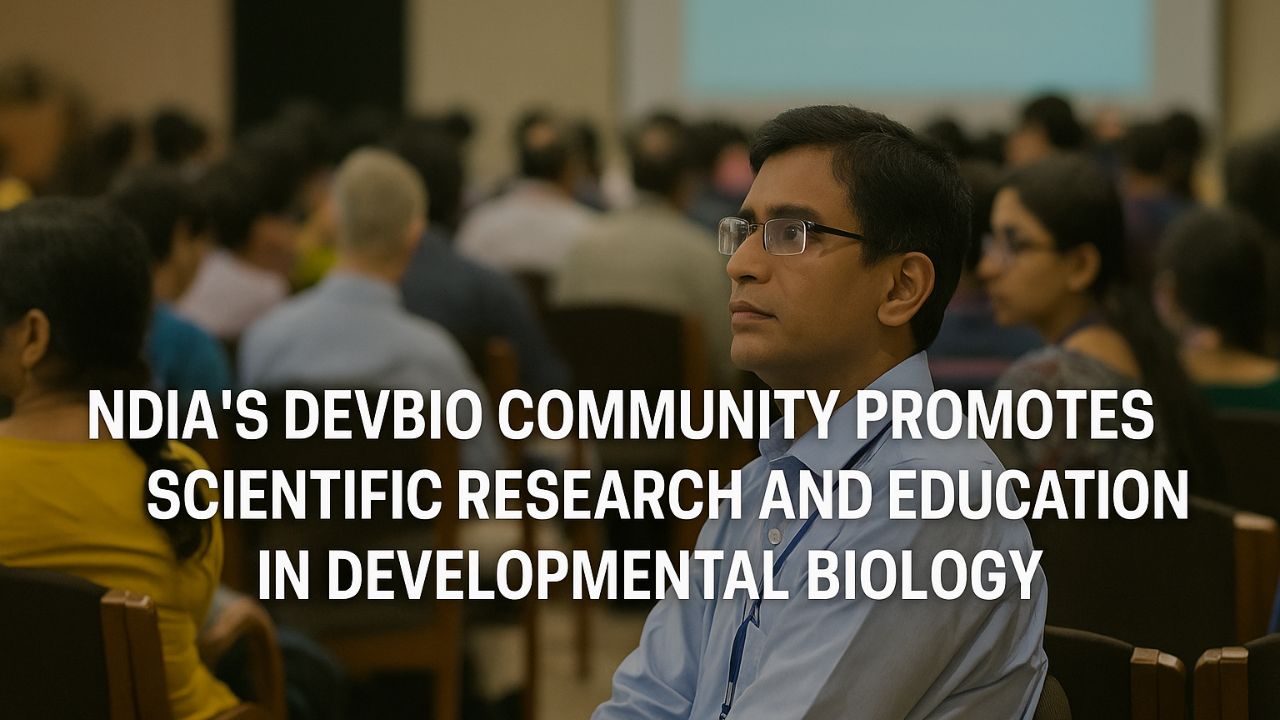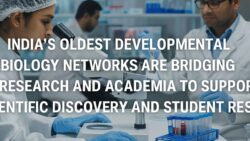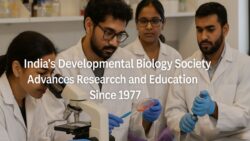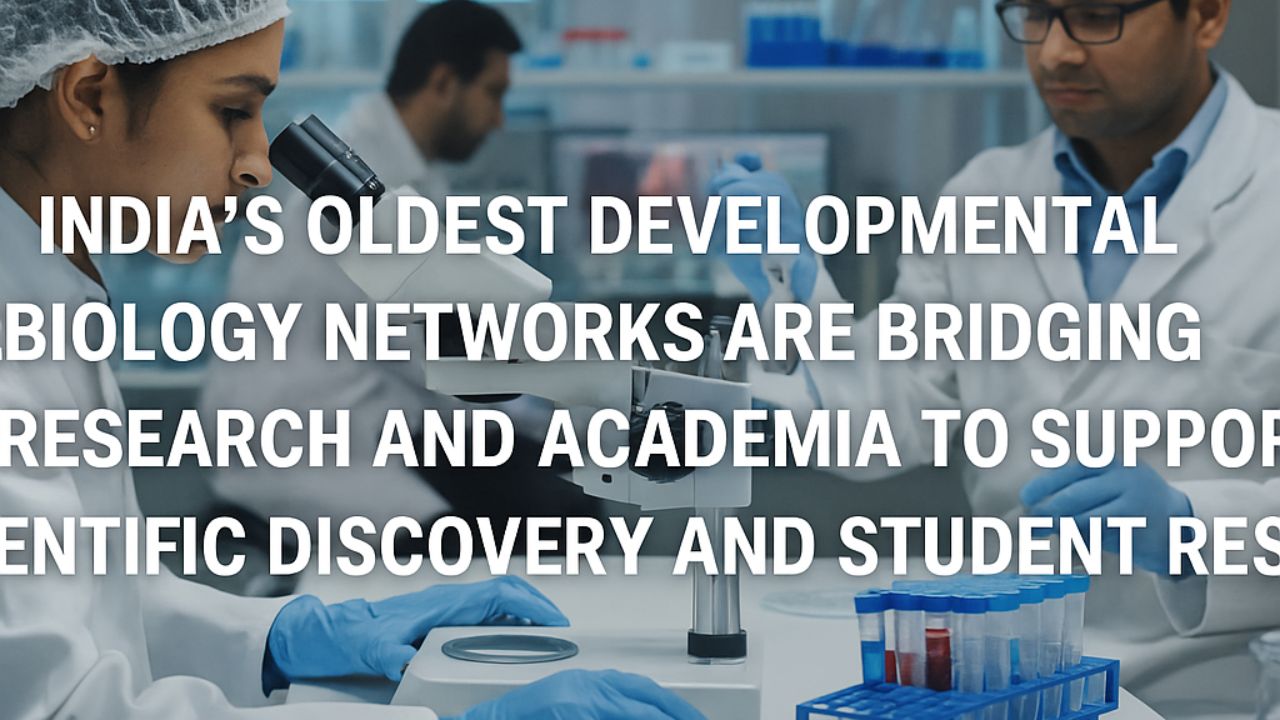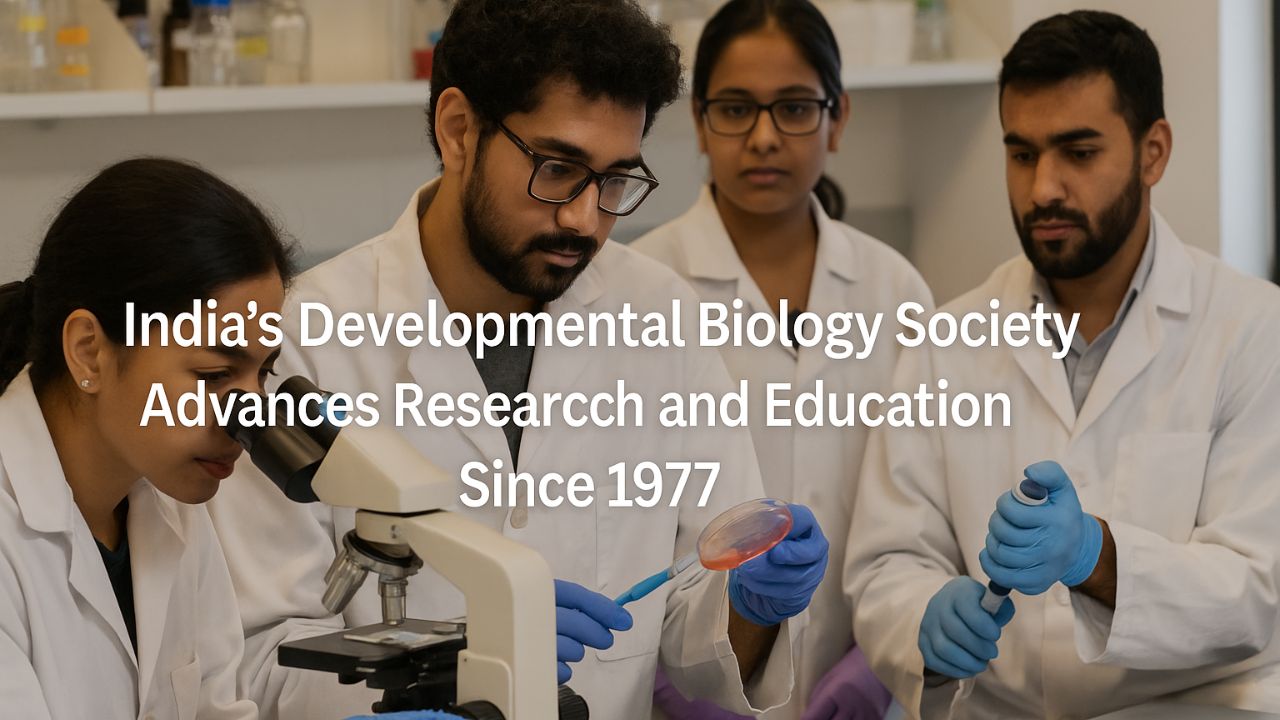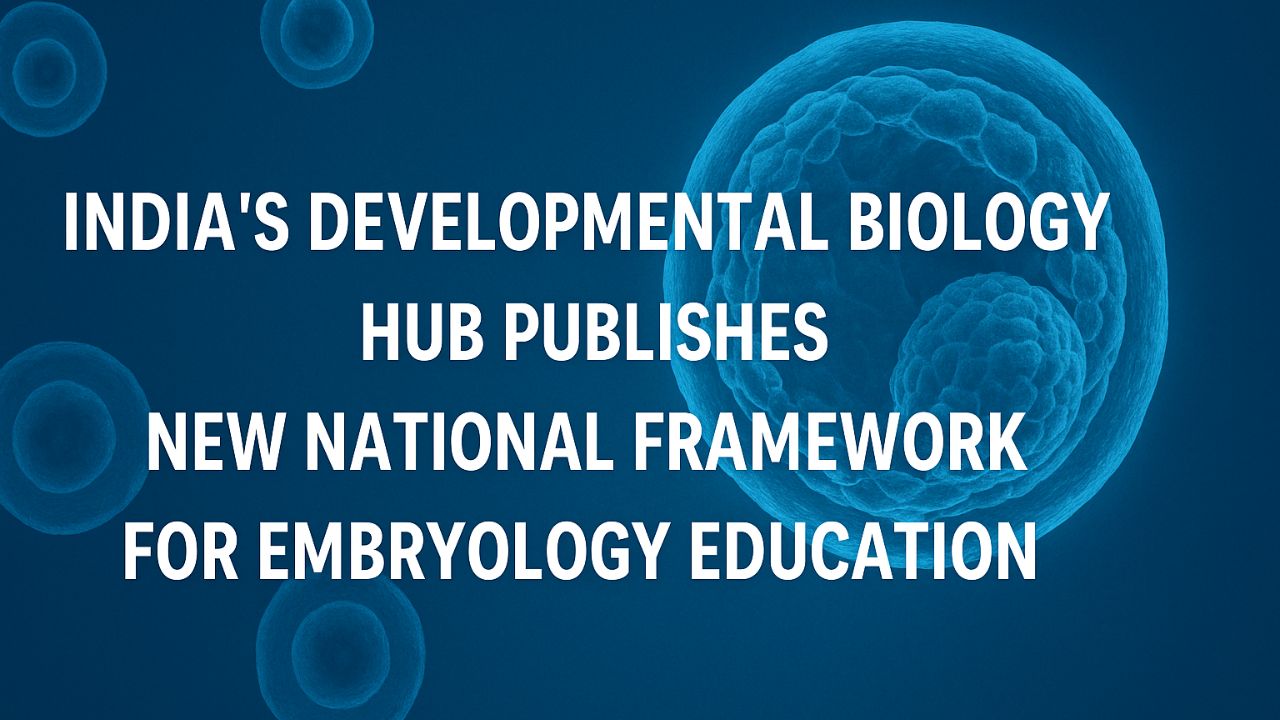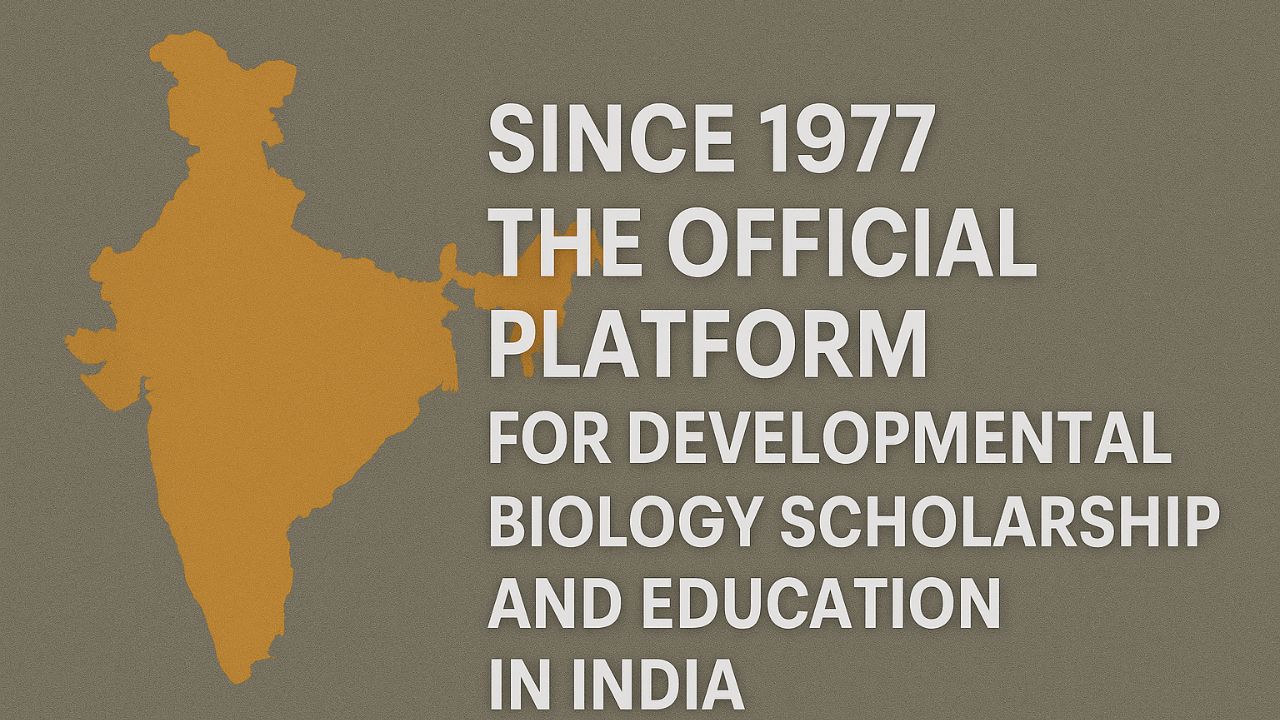India’s DevBio Community : In recent years, India has seen a remarkable surge in scientific collaboration, especially in the biological sciences. Among these, developmental biology—a discipline exploring how organisms grow and develop—has gained substantial traction. The Indian Developmental Biology (DevBio) community has emerged as a cornerstone in promoting education, fostering interdisciplinary research, and nurturing young talent across the country.
With a growing network of scientists, educators, and students, the DevBio community in India is playing a pivotal role in addressing key questions in biology. It has created platforms for dialogue, offered hands-on workshops, hosted international conferences, and developed open-source resources. Their vision is not just scientific discovery but building a robust scientific ecosystem where curiosity-driven research flourishes.
The community also bridges gaps between institutions, connects early-career researchers with mentors, and facilitates global partnerships. In doing so, it aligns with the broader goals of Atmanirbhar Bharat in science and technology. By making developmental biology more accessible and engaging, it strengthens India’s standing in the global scientific community.
Foundations of the Indian DevBio Community
The Indian DevBio community is built on a vision to enhance scientific collaboration, education, and research across various biological domains.
- Created to promote developmental biology as a distinct and valuable discipline.
- Connects researchers from institutions like NCBS, IISc, IITs, and CSIR labs.
- Organizes conferences, webinars, and symposiums regularly.
- Provides open-access resources and teaching materials for universities.
- Runs mentorship programs for undergraduate and graduate students.
- Collaborates with international bodies such as SDB (Society for Developmental Biology).
- Focuses on emerging technologies such as single-cell analysis and genome editing.
Key Institutions Leading the DevBio Movement
A select group of Indian institutions has taken the lead in advancing developmental biology through research and academic programs.
| Institution Name | City | Notable Contribution | Research Focus | Programs Offered | Contact Person | Website | |
|---|---|---|---|---|---|---|---|
| NCBS | Bangalore | Model organism research | Genetics, Evo-Devo | PhD, Workshops | Dr. L. Sane | [email protected] | www.ncbs.res.in |
| IISc | Bangalore | Stem cell and regeneration studies | Developmental Neurosci. | MSc, PhD, Postdoc | Dr. A. Joshi | [email protected] | www.iisc.ac.in |
| TIFR | Mumbai | Embryogenesis models | Cell Differentiation | PhD, Research Internship | Dr. P. Rao | [email protected] | www.tifr.res.in |
| IIT Kanpur | Kanpur | Genetic circuits and pattern formation | Systems Biology | BTech, MTech, PhD | Dr. R. Gupta | [email protected] | www.iitk.ac.in |
| CCMB | Hyderabad | Molecular development | Developmental Genetics | PhD, Training Courses | Dr. M. Singh | [email protected] | www.ccmb.res.in |
| NISER | Bhubaneswar | Evo-devo and organismal biology | Evolutionary Biology | BS-MS, PhD | Dr. K. Sharma | [email protected] | www.niser.ac.in |
| IISER Pune | Pune | Zebrafish and drosophila labs | Developmental Dynamics | BS-MS, PhD | Dr. V. Kulkarni | [email protected] | www.iiserpune.ac.in |
Core Objectives and Initiatives
The DevBio community isn’t just about research; it’s a movement toward transforming biology education in India.
- Democratizing access to scientific knowledge through free resources.
- Encouraging early-stage exploration of biology in schools and colleges.
- Developing curriculum-aligned learning modules with hands-on activities.
- Supporting underrepresented regions with lab kits and mentorship.
- Bridging academia and industry through innovation forums.
- Offering guidance on career pathways in developmental biology.
- Advocating for gender equity and inclusivity in scientific spaces.
Outreach and Awareness Programs
To make developmental biology mainstream, the community invests heavily in outreach.
| Initiative Name | Target Audience | Activity Type | Frequency | Impact Scope | Partners Involved |
|---|---|---|---|---|---|
| DevBio Schools Program | High School Students | Hands-on Workshop | Bi-annual | 500+ Students | DST, DBT, Vigyan Prasar |
| BioClubs | Undergraduate Students | Journal Clubs, Projects | Monthly | 1,000+ Students | IISERs, NCBS |
| DevTalk Series | General Public | Public Lectures | Quarterly | Pan-India | IndiaBioscience, INSA |
| Internship Drive | UG & PG Students | Research Internships | Annual | 200+ Institutions | Govt. and Private Labs |
| Mentor Match | Early-career Scientists | Mentorship Circles | Bi-monthly | 800+ Mentees | SDB, Wellcome Trust |
Funding, Scholarships, and Support Systems
One of the major enablers of research in this field is strong institutional and financial backing.
- Government agencies like DBT and CSIR fund core research projects.
- Fellowships such as INSPIRE and UGC-JRF are accessible to students.
- Seed funding provided for independent young investigators.
- International collaboration grants (e.g., Newton-Bhabha, EMBO Short-Term).
- Many institutions offer internal research development grants.
- Industry partnerships for translational research in medical science.
- Non-profits like IndiaBioscience offer microgrants for science outreach.
Scholarships and Fellowships for DevBio Aspirants
| Scholarship Name | Provider | Eligibility Criteria | Amount/Benefits | Duration | Application Cycle |
|---|---|---|---|---|---|
| INSPIRE Fellowship | DST | UG/PG students in science | ₹80,000/month + contingency | 5 Years | June-November |
| CSIR-JRF | CSIR | MSc holders in life sciences | ₹31,000/month + HRA | 2+3 Years | Biannual |
| DBT-JRF | DBT | PG with biotech background | ₹31,000/month + contingency | 5 Years | April, October |
| EMBO Short-term Fellow | EMBO | PhD students, Postdocs | Travel + Accommodation | 1-3 Months | Rolling Basis |
| SERB Start-up Grant | SERB | New faculty | ₹30 Lakh | 3 Years | Round the year |
| Wellcome Trust India | Wellcome DBT India | Postdocs & Researchers | ₹50 Lakh + Training Fund | 3-5 Years | Select Calls |
Career Opportunities and Research Scope
Developmental biology offers a wide spectrum of career paths—academic, industrial, and interdisciplinary.
- Academic research and teaching roles at top universities.
- Opportunities in pharmaceutical and biomedical R&D.
- Positions in science communication, policy, and outreach.
- Interdisciplinary roles in bioinformatics and systems biology.
- Global fellowships and postdoc opportunities in Europe and USA.
- Consulting and biotech innovation in embryology, fertility, and genomics.
- Increasing demand for curriculum developers in biology education.
Skills Needed for a Career in DevBio
| Skill Set | Importance Level | Application in Field | How to Acquire |
|---|---|---|---|
| Microscopy Techniques | High | Cell imaging, tissue sectioning | Lab internships, online courses |
| Model Organism Handling | High | Zebrafish, Drosophila, C. elegans | Research training, lab practicals |
| Genetic Engineering | Medium | CRISPR, Gene knockout | Workshops, project work |
| Scientific Writing | High | Publishing papers, grant writing | Academic writing programs |
| Data Analysis | Medium | Bioinformatics, imaging software | R/Python workshops, online MOOCs |
| Collaborative Skills | High | Team-based research, international projects | Conferences, hackathons |
Future Roadmap and Strategic Vision
Looking ahead, the Indian DevBio community aims to deepen its impact through expansion and collaboration.
- Establish regional centers of excellence in developmental biology.
- Launch national-level textbook projects for undergraduate biology.
- Promote citizen science projects on regeneration and development.
- Expand student research fellowships to Tier-2 and Tier-3 cities.
- Create a centralized DevBio database for Indian labs and resources.
- Develop AI-assisted developmental pattern prediction tools.
National and International Collaborations in Pipeline
The Indian community is actively pursuing collaboration opportunities that can redefine the scope of research.
| Collaboration Type | Partner Institutes | Objective | Outcome Expected |
|---|---|---|---|
| Indo-UK Joint Workshops | University of Cambridge | Exchange of knowledge in Evo-Devo | Faculty exchange, joint papers |
| Indo-US Science Forums | NIH, Stanford | Research mobility and seed grants | Startups, shared resources |
| SAARC DevBio Consortium | NIB, Nepal, KU, Sri Lanka | Regional biology network | Resource sharing |
| Virtual Training Platforms | EMBO, iBiology | Online teaching modules | Increased accessibility |
Departmental Contact Details
For inquiries related to joining, collaborating, or supporting the DevBio community in India:
| Department/Body | Contact Person | Phone | Address | |
|---|---|---|---|---|
| Indian DevBio Secretariat | Dr. Meera Krishnan | [email protected] | +91-9876543210 | NCBS Campus, GKVK, Bangalore – 560065 |
| National Coordinator (IISc) | Prof. Anil Deshmukh | [email protected] | +91-8123456789 | IISc, C.V. Raman Rd, Bangalore – 560012 |
| Outreach Program Lead | Ms. Priya Rajan | [email protected] | +91-7001234567 | IISER Pune, Pashan Road, Pune – 411008 |
| Scholarships & Fellowships | Mr. Abhinav Bansal | [email protected] | +91-9898989898 | TIFR Mumbai, Colaba, Mumbai – 400005 |
Frequently Asked Questions
Q1. What is developmental biology?
Developmental biology is the study of how organisms grow and develop, focusing on cell differentiation, gene expression, and organ formation.
Q2. Can undergraduate students join the DevBio community?
Yes, many programs, internships, and workshops are tailored specifically for undergraduate engagement.
Q3. What are the career options after studying developmental biology?
Career paths include academic research, biotech R&D, science writing, and bioinformatics, among others.
Q4. Are there online resources provided by the community?
Yes, the DevBio India portal offers lectures, teaching modules, research databases, and career resources.
Q5. How can institutions collaborate with the DevBio community?
Institutions can reach out via email or participate in community-led programs, calls for proposals, and regional workshops.
